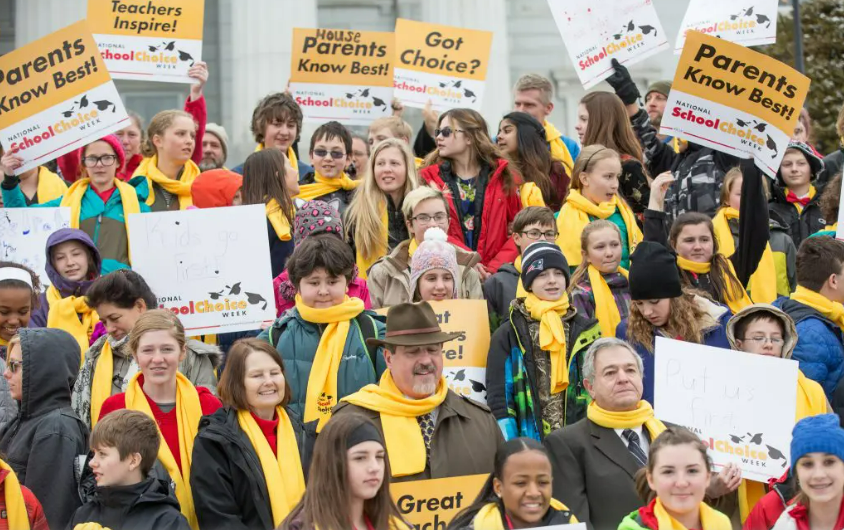
Vermont’s 154-year-old school voucher program is in jeopardy because of a new bill introduced in the state Senate this month. Worse still, the legislation offers a unique means of circumventing a string of U.S. Supreme Court victories that have expanded school choice over the last two decades.
Vermont’s Town Tuitioning Program allows parents living in rural towns to select a public school in another district or an approved private school if their local district offers no public school for their child’s grade level. EdChoice, a school choice think tank, describes the program as “one of the most restrictive educational choice programs in the nation,” finding that just 4% of students in the state qualify.
Today, about 6,000 students statewide use the program. About half choose a private school.
The bill, S.66, sponsored by 11 Democrats and backed by a group calling itself the Education Equity Alliance, which includes the state’s superintendents association and teachers union, will severely limit parental choice if passed.
The bill’s supporters are marketing it as a way to ensure equity by preventing discrimination against students because of their skin color, race, sex, gender, or sexual orientation. However, such discrimination already is prohibited by state, federal and school board rules.
The real reason for the bill is apprehension regarding paying for religious instruction thanks to a string of victories by school choice supporters, culminating in last year’s 6-3 U.S. Supreme Court decision in Carson v. Makin.
To recap: In 2002 the Supreme Court ruled in Zelman v. Simmons-Harris that scholarships paying K-12 tuition at religious private schools did not violate the First Amendment’s so called “separation of church and state.”
School choice opponents then relied on “Blaine Amendments,” a relic of 19th century religious bigotry, to block programs. But that effort was overturned in Espinoza v. Montana, which found that “a state need not subsidize private education. But once a state decides to do so, it cannot disqualify some private schools solely because they are religious.”
Espinoza restrained states from using Blaine Amendments to restrict school choice, but opponents still found a way. Maine, which offers a town tuitioning program similar to Vermont’s, thought it was clever when it allowed all religious schools to participate so long as they offered no religious instruction.
That argument proved to be a distinction without a difference, and the court struck that down as well in Carson v. Makin, arguing that “use-based” restrictions violated the Constitution’s Free Exercise Clause.
According to these Supreme Court cases:
- The U.S. constitution does not prohibit parents from choosing private religious schools participating in school voucher programs.
- State constitutions cannot prohibit parents from choosing religious private schools participating in school voucher programs.
- States cannot restrict parental choices to only private schools offering secular instruction.
So, what is a school choice opponent to do? S.66 offers the answer: Take away parental choice.
Instead of allowing parents to choose among any state public school or state-approved private school, the bill requires local school districts to select up to three public or private schools. Parents are restricted to those three choices.
The bill also eliminates the state’s process for approving private schools to participate while also limiting program eligibility to private schools meeting certain conditions. Instead, local districts will be empowered to invent their own selection process and have until 2028 to do so.
The bill avoids entangling itself with past Supreme Court rulings by not mentioning anything about religious or secular education.
It’s hard to see how limiting educational choice so severely won’t negatively impact private schools in the state. But the bill’s plan to foil private school vouchers is not without flaws.
The 2002 Zelman v. Simmons-Harris ruling found that vouchers to attend private religious schools did not violate the Constitution if, and only if, parents had a diverse menu of religious and non-religious schools to choose from. By limiting choice to three schools selected by bureaucrats, S.66 runs the risk of offending the Constitution once a district selects one faith-based school while denying a different faith from participation.
If S.66 passes, expect a lawsuit shortly.


